Reportage

Good Morning!
Excellencies, ladies and gentlemen, it gives me enormous pleasure to welcome you all to yet another symposium of the Cosmos Foundation. Your support, I must say, has been key what I like to believe is the continuing success of the Foundation in fulfilling our mandate of installing into the minds of our audiences, knowledge about significant issues that confront our community and encouraging deliberations and debate on them.
One such issue is how best we can relate to our friends beyond our frontiers in a manner that both sides can derive maximum benefit. Australia as a country and Australians as a nation fit that description to a T. So this symposium on Bangladesh-Australia relations as the part of our Ambassador Lecture Series should come as no surprise to anyone.
What is the matter of great joy for all of us is that Australia is represented here in Dhaka by a person of the quality and energy as High-Commissioner Julia Niblett. During her remarkable and continued tenure, she has carried the Australian flag to every nook and corner of the Bangladesh community and earned our respect and affection. I thank you high commissioner for accepting our invitation to be here with us today.
Your presence, I have no doubt, will not only broaden and deepen our understanding of Australia, but also show us the path to tread in terms of friendship and co-operation in the future ahead. I would like to take advantage of the occasion to share with this distinguished gathering some of our thoughts and ideas about our mission and vision of the Cosmos Foundation.
Our work programmes have received a tremendous fillip, among other things, from our collaboration with the Institute of South Asian Studies (ISAS) of the National University of Singapore. It is represented here by their Principal Research Fellow and our Chair Dr Iftekhar Chowdhury, a globally renowned scholar-diplomat, who was also our former foreign affairs advisor in a caretaker government. Recently, I have myself participated in two ISAS events in Singapore - one on UN peacekeeping with special emphasis on Bangladesh and the other was the flagship annual general conference on South Asia.
Takeaways from those have fed into our thinking at the Cosmos Foundation. Indeed our last event at Cosmos not so long ago, on the UN and Bangladesh, was a great treat for all of us to hear the keynote address at the event of Lord George Mark Malloch Brown, former deputy secretary general of United Nations and former UK minister. We planned to continue this programme in two formats. One is the distinguished speaker series and the other is the ambassador lecture series.
I am pleased to be able to now announce that our next distinguished speaker will be a significant player in the European political scene, the former president of Slovenia Danilo Türk, who is also a well- known thought leader in current European politics. This programme will take place on the 11th of January. We are also planning an interaction with Nordic representatives as a group, as part of our ambassador lecture series.
You will notice that our events are being matched by our publications which are largely focused on thematic subjects --climate change, wildlife conservation, issues like Rohingya and such. The reputation of our weekly magazine Dhaka Courier is spreading far and wide and that includes research pieces more and more, which are gaining interest among the academic community.
We are inspired by the fact that the government of Prime Minister Sheikh Hasina accords such salience to the spread of learning. We also take an interest in propagating digital education and the understanding of new and appropriate technology. The Cosmos Foundation is grateful to eminent government leaders and functionaries who had contributed to richness of our deliberations and I must in this respect mention a few names such as Foreign Minister Abdul Momen, Law Minister Anisul Huq, Planning Minister MA Mannan, and Foreign Secretary Shahidul Haque.
Most of all, it is the blessings of you as participants that we seek, for you are the peers that we look to, whether for cheering our successes or correcting our failures.
Dialogue among nations could calm people down and help people learn from the long history, learn from visual understanding, transcend various disputes and contradictions, find the key to solving today's challenges and consolidate the humanistic foundation to build a community with a shared future.






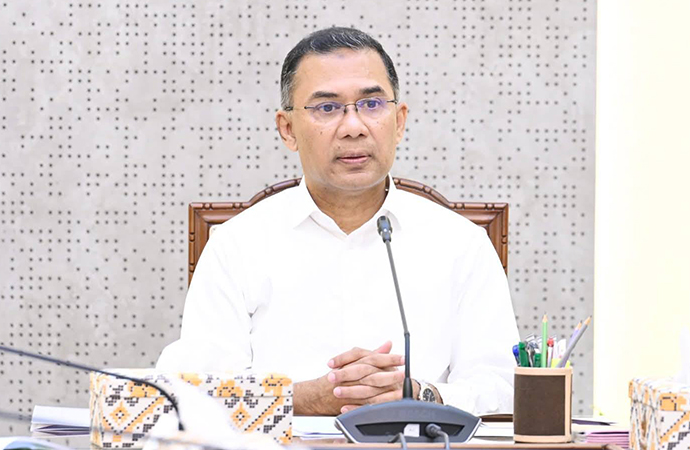
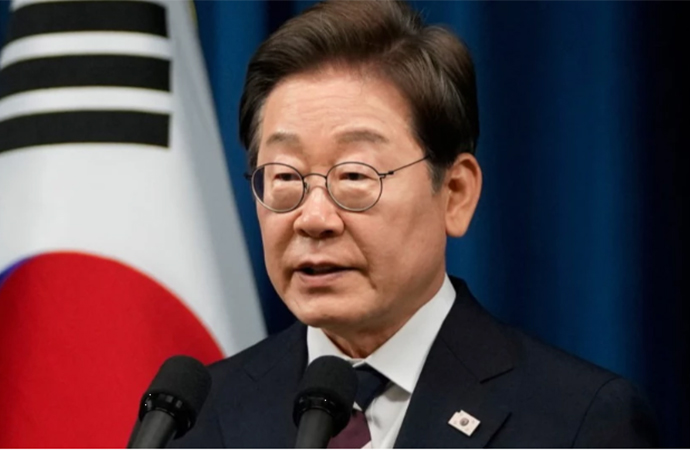
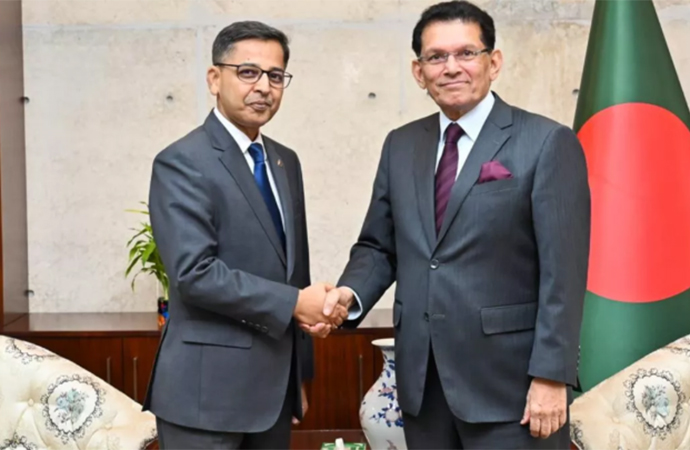
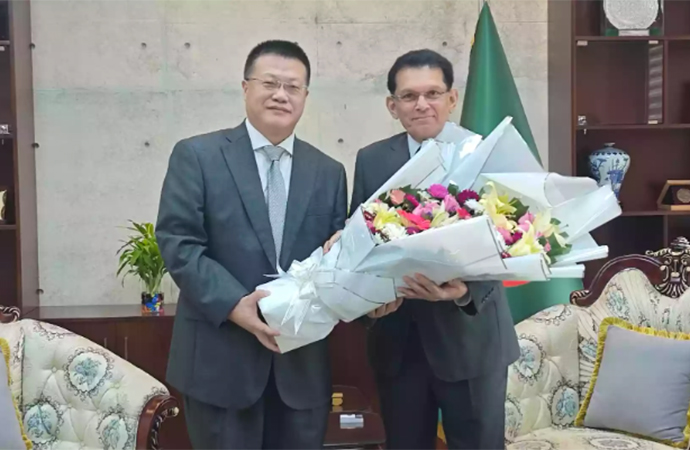
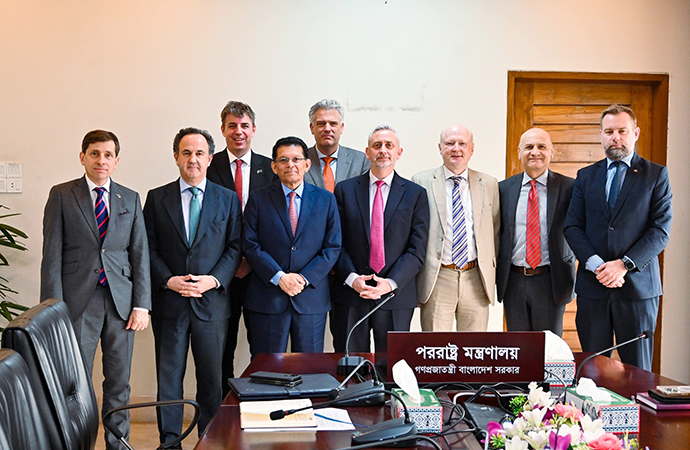
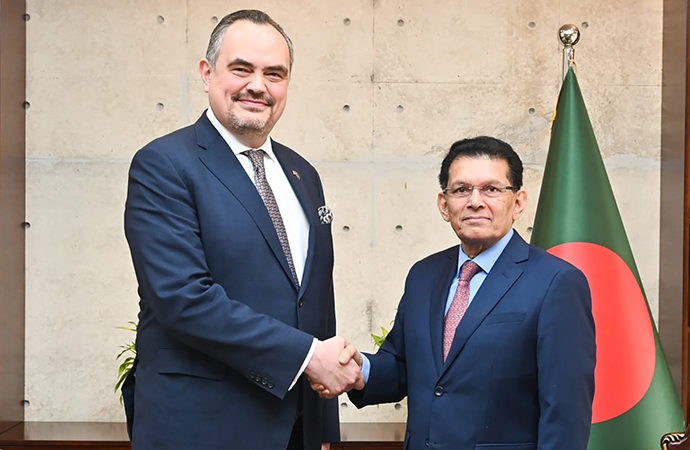







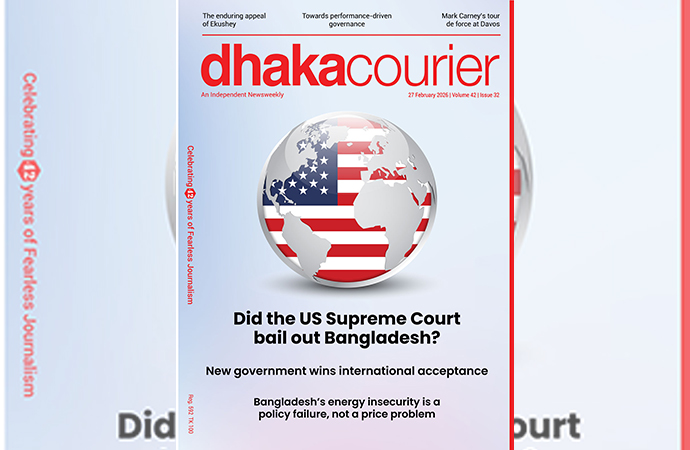





Leave a Comment
Recent Posts
Bangladesh’s first drought-res ...
In a groundbreaking development for Bangladesh’s agriculture, Ga ...
US and Iran hold another round ...
Iran and the United States were holding another round of indirect talk ...
An early hiccup for the new government?
Japan invites PM Tarique, eyes cooperation with Bang ..
Bangladesh to achieve sustained growth, prosperity u ..
Dhaka indicates ‘forward looking, balanced partnersh ..